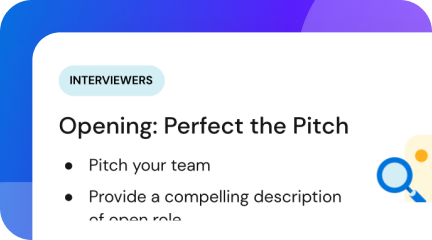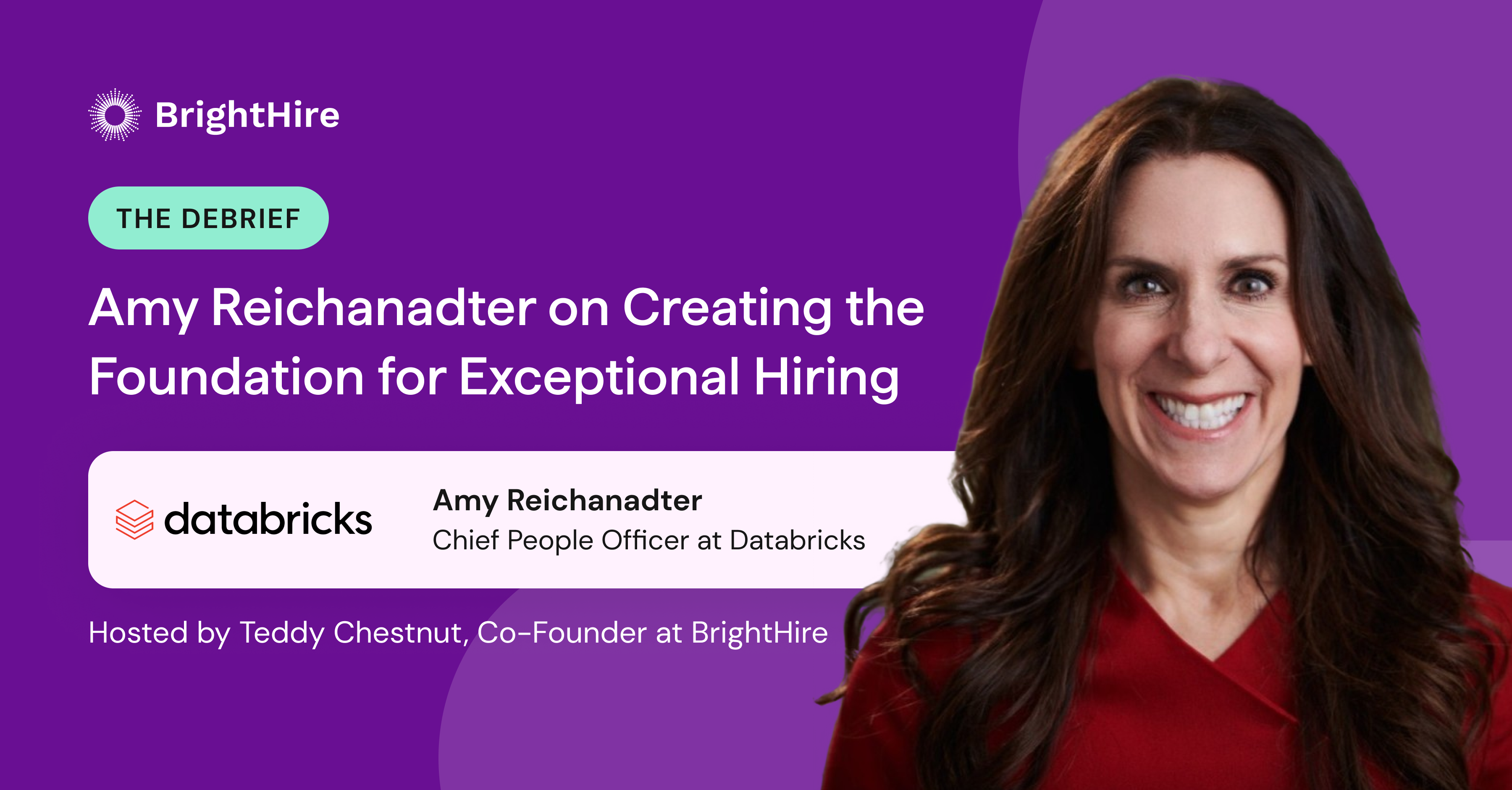Giving candidates a great experience while guiding them through the hiring process is easier said than done. Your path can be full of obstacles – like tackling the pre-close conversation, negotiating compensation, or even revoking an offer. These are just a few of the conversations recruiters must navigate successfully while trying to maintain a positive candidate experience.
How much does a candidate’s experience really matter? It’s more than just a perk of interviewing. A recent survey found 58% of job seekers have declined offers due to a negative experience. The leading reason those candidates turned down their offer? Hint: it’s not compensation and benefits. The main reason cited was a poor experience with someone during the interview process.
By equipping yourself with the right resources and tools, you can take on any obstacle you and your candidate may face together. To help you gear up for the hiring journey ahead, we’re sharing five recruiting strategies from talent acquisition leaders to help you handle some of the toughest recruiting conversations.
Learn more about each of these strategies in The Recruiter’s Guide to Tough Conversations. It’s full of tips and tricks to help you as you navigate candidates to success.
5 recruiting strategies to boost candidate experience.
How to Pre-Close a Candidate: Preparing for the conversation
The primary goal of pre-closing is to increase the chances of landing your first-choice candidate. You want to keep them from veering off course or turning to another recruiter.
“The more a candidate is brought in, earlier, the more context you have and the easier your success will be. If you wait to close until the end of the process, you’re more likely to be thrown off because the candidate’s terms, conditions, or expectations have changed while you waited.”
– Efrat Dagan, Founder & CEO at Workaround
Strategy 1: Proactively plan for the pre-close conversation.
Research your candidate to learn their preferences and motivations early on. The more you know about them, the better you can map the course to keep them excited about the journey.
Rely on tools like an interview intelligence platform. With the help of interview intelligence, you can rewatch key interview moments to refresh yourself on the candidate’s needs, motivators, and expectations. When you’re ready to pre-close, you can use this insight to refine your pitch and keep your candidate excited about the role.
How to Align on Compensation: Level setting expectations
As a recruiter, it’s your job to foresee what might lie ahead and plan a journey that matches the experience of your candidate. Prepare a salary range for the role and gauge the candidate’s expectations early in the process. The key is to design an offer that strikes a balance between your company’s budget, your candidate’s salary expectations, and their previous experience.
Strategy 2: Understand a candidate’s salary expectations early in the process.
Ideally, the candidate’s expectation falls within both the market average and the hiring manager’s range. This information will help you prepare in case the candidate expects more than what’s promised.
If they expect more, consult with the hiring manager to see if they might 1) match or counter the requested salary, or 2) supplement the offer with non-salary perks. This could include remote work, flexible hours, and/or wellness stipends, to name a few.
“Compensation is, of course, important to candidates. But they often have other motivators too. I always try to understand the bigger picture by asking on the first call what a candidate is looking for in their next role. That way, once we get to the end of the process, I can reiterate the things beyond compensation that they expressed were important.”
– Rachel Clark, Revenue Recruiter at Salesloft
How to Negotiate an Offer: Navigating when candidates ask for more
“Most sophisticated [candidates] and negotiators understand that everything is negotiable, but salary negotiations are a different stage in the process. Once you tell a candidate you’re wanting to move forward, the power equation changes. They have more [power] than they had in the hiring process.”
– Efrat Dagan, Founder & CEO at Workaround
When a candidate requests a change to compensation, it’s important to understand why. Maybe they have concerns they were afraid to voice before, or their personal circumstances have changed and affected their needs.
Strategy 3: When a candidate requests a compensation change, ask questions to understand their motivations and gain insight into their thought process.
If the candidate is suddenly unhappy with the compensation package but you feel their hesitation is unmerited, refer back to previous salary-related conversations. At times, simply reminding them why the compensation package is structured the way it is and providing more industry research to support it can be enough to mitigate concerns.
When in doubt, ask a colleague. Don’t be afraid to consult more senior recruiters if you aren’t sure how to push back on a candidate’s request. They may have ideas for other tactics learned from years of guiding candidates.
How to Improve Candidate Experience While Representing Hiring Teams: Balancing both sides
Picture this: A candidate shows great promise from the beginning. They do everything right – play by the rules, tick all the boxes, and put their best foot forward. But to your surprise, the hiring team isn’t convinced they’re the right fit. What now?
All is not lost. There are often chances to turn things around. While you can’t make the final decision, you can influence the decision if you feel the candidate deserves it.
“If you’re not on the same page as your hiring team, jump on a call together to understand their hesitations and what they’re looking for that the candidate doesn’t have. Having an open discussion may also give you an opportunity to sell them on the candidate or overcome their objections.”
– Rachel Clark, Revenue Recruiter at Salesloft
Strategy 4: Dig deeper into why the hiring team is rejecting the candidate.
Look for clear indications like negative comments from the hiring committee. Compare them with the job description and the candidate’s experience and background. Then ask yourself: do those critiques justify turning down the candidate? If not, raise this issue with the hiring committee to see what might be misaligned.
You can use an interview intelligence platform to dig into the exact reason why a hiring committee may have rejected a candidate. By capturing data from the interview process, you can review specific answers and understand what part of the candidate’s performance may have led your team to decline them.
How to Revoke an Offer: Course-correcting when an offer falls through
As a recruiter, pulling a job offer you’ve already given to a candidate is one of the toughest conversations you can have. However, it’s important to remember that this outcome doesn’t make you or your candidate a failure. These circumstances are beyond your control, and neither of you needs to suffer permanent damage to your career or reputation as a result.
Strategy 5: When sharing a revoked offer, equip yourself with documentation and communicate clearly.
Communicate the situation early, use clear documentation to support the decision, and prepare for potential candidate responses to minimize negative outcomes. Stay positive and maintain transparent communication with the candidate throughout the process. Obtaining support from your legal team and written documentation are the most helpful resources in this challenging position. These tools can give you more confidence to discuss a revoked offer.
Uncover more tips and tricks to a better candidate experience.
These five strategies are just a preview of the advice and insights you can uncover in The Recruiter’s Guide to Tough Conversations.
Download the guide to access:
- Even more wisdom and expertise from seasoned recruiters
- Warning signs to watch out for, so you can avoid wrong turns or pitfalls during difficult conversations
- A handy checklist to make sure you’re prepared for compensation discussions
- Sample questions and responses you can use to prep for tough conversations with candidates









